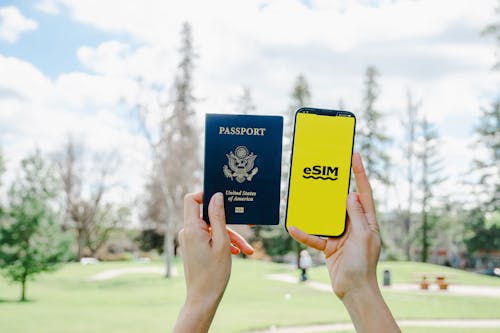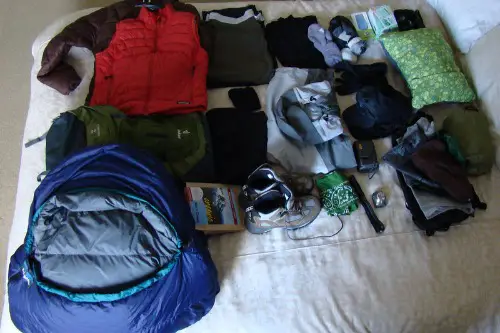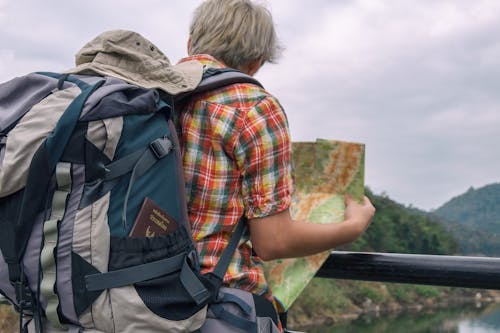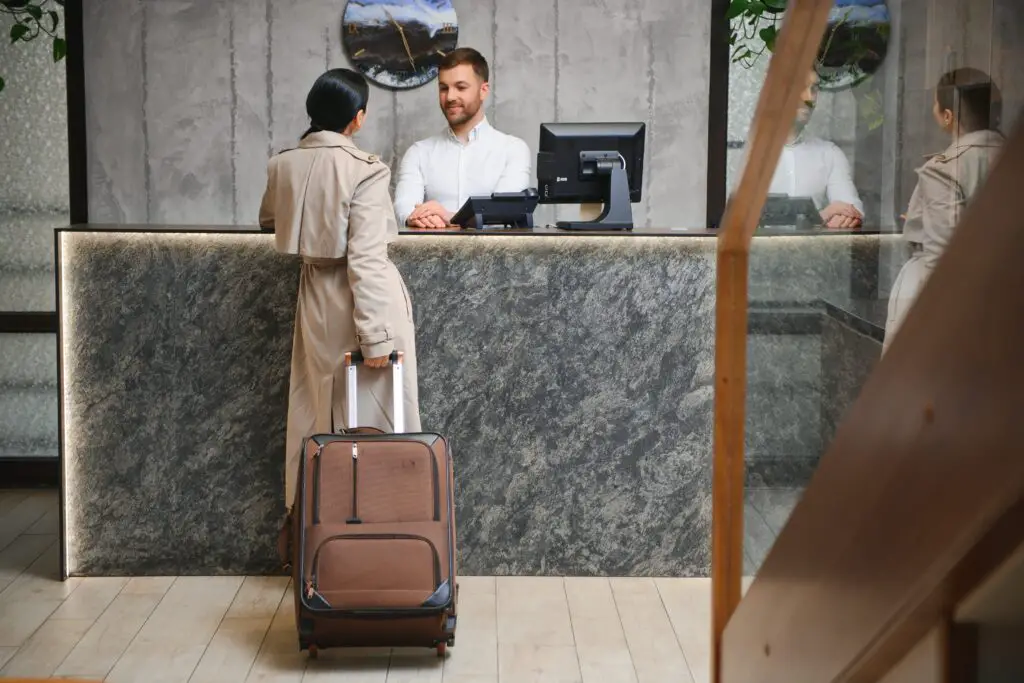1. Chasing the Trendiest Destinations

It’s easy to fall into the trap of picking locations because they look amazing on Instagram. Trendy spots often come with inflated prices for lodging, food, and experiences. You might justify it as “living the dream,” but your wallet quietly disagrees. Over time, these constant splurges can add up to a substantial dent in your budget.
Even if the destination feels magical, constantly chasing hype means you’re paying a premium for everything. Accommodation rates, local transportation, and popular restaurants tend to spike during peak social media exposure. Choosing destinations solely based on trendiness can erode your savings faster than an unexpected flight upgrade. It’s smart to balance bucket-list spots with more affordable, lesser-known locales.
2. Frequent Flights Instead of Slow Travel

Booking flights every few weeks is convenient but expensive. Even budget airlines add fees for baggage, seat selection, and last-minute changes. Those costs accumulate quickly, making what seems like flexibility a costly habit.
Slow travel, like spending weeks or months in one place, often allows you to rent longer-term accommodations at discounted rates. You can cook your own meals, use public transport, and experience life like a local. Frequent flights, by contrast, keep you in constant “tourist mode,” paying peak prices at every stop. Over time, the savings you could have gained by settling in one place disappear.
3. Overpacking and Baggage Fees

Bringing too much stuff on the road is surprisingly expensive. Airlines charge high fees for extra or overweight luggage, and you often end up paying repeatedly. It’s easy to justify packing more “just in case,” but each added kilo adds up financially.
Living light not only saves money but also reduces stress. Minimalist packing encourages you to buy fewer impulse items, and smaller luggage often fits in budget transport options. By overpacking, you’re essentially paying storage fees in disguise. It’s a sneaky habit that silently drains your savings while making travel more cumbersome.
4. Staying in Hotels Instead of Short-Term Rentals

Hotels are convenient, but they come with hidden costs. Daily room service, overpriced mini-bars, and incidental fees can quickly outpace a rental apartment or house. For short stays, hotels might feel harmless, but the repeated expense adds up dramatically over months.
Short-term rentals often offer kitchens, laundry facilities, and a more homely environment. Cooking your own meals instead of dining out every day saves hundreds of dollars monthly. Rentals also allow for negotiation on longer stays, giving more predictable budgeting. Hotels are indulgent, but when habitual, they’re one of the fastest ways to burn through savings.
5. Eating Out Every Meal

It’s tempting to experience the local cuisine constantly, but restaurant bills pile up. Even small meals several times a day can double or triple your daily expenses. Many nomads underestimate how much “trying everything” really costs.
Cooking simple meals at home or street food alternatives can cut costs significantly. Local markets are often cheaper and provide a cultural experience without the restaurant markup. Over time, the cumulative effect of eating out exclusively can erode the cushion you’ve built for emergencies. Balancing restaurant indulgences with self-cooked meals keeps both your stomach and savings happy.
6. Ignoring Local SIM Cards and Data Plans

Relying on international roaming or airport SIMs is convenient but costly. Many carriers charge exorbitant daily rates for data, which adds up quickly over weeks or months. If you don’t plan ahead, connectivity becomes a major budget leak.
Investing in a local SIM or eSIM plan is often much cheaper. It also opens doors to deals and discounts available only to residents. Nomads who overlook this often pay a hidden “communication tax” without realizing it. A small upfront effort saves a significant chunk of your travel budget in the long run.
7. Premium Travel Insurance for Every Trip

Insurance is crucial, but upgrading to the highest tier for every journey is expensive. Some travelers assume “more expensive equals better,” even if the coverage duplicates services they don’t need. This habit quietly eats into funds that could be invested elsewhere.
Assessing your actual risk and travel style can drastically cut insurance costs. Many nomads only need basic coverage unless they’re engaging in extreme activities. Choosing a plan tailored to your circumstances prevents overspending on unnecessary protection. It’s all about being smart with safety, not just shelling out extra.
8. Impulse Gear Purchases

Every destination seems to sell something “essential” for your lifestyle. From hiking gadgets to trendy backpacks, these purchases feel necessary at the moment. Over time, these impulse buys add up to hundreds, if not thousands, of dollars.
Experienced nomads often stick to versatile, long-lasting gear and resist the temptation to buy souvenirs disguised as necessities. Minimalism saves money and simplifies life on the road. Unplanned gear purchases are a silent wallet drain disguised as practical preparation. Every impulsive gadget chips away at savings without providing long-term value.
9. Frequent Co-Working Spaces

Working remotely in fancy co-working spaces can be motivating, but daily passes are pricey. Memberships often add up, especially in expensive cities. While the networking benefits are real, the financial strain can outweigh them if used excessively.
Many nomads find coffee shops, libraries, or even their rental apartments sufficient for productivity. Reducing reliance on co-working spaces can significantly cut monthly expenses. Spending hundreds on temporary desks is a habit that slowly erodes savings. You’re essentially paying for a desk and Wi-Fi that you might not even need every day.
10. Skipping Public Transport

Taxis and rideshares are comfortable, but the costs accumulate fast. Opting for private rides over buses, trains, or bikes can easily double transportation expenses. Some travelers justify it as “time saved,” but the savings lost are rarely worth it.
Public transportation also offers cultural immersion and local insights you’d miss otherwise. Many cities offer multi-day passes that are far cheaper than repeated short rides. Over time, skipping public transit can make even short trips unexpectedly expensive. Incorporating local transit is both economical and more authentic.
11. Chasing Experiences Without Budgeting

From guided tours to adrenaline-filled adventures, experiences are often the main reason people travel. But booking everything without a budget can lead to overspending. It’s easy to justify spending because “you’re only young once,” yet the cumulative cost is surprising.
Prioritizing a few must-do activities and researching discounts saves money. Some attractions offer weekday rates or online booking discounts. Traveling smart means saying no sometimes, even to amazing experiences. Thoughtful planning ensures memorable trips without financial hangovers.
12. Relying on International Banks

Using foreign ATMs and credit cards without understanding fees can be expensive. Withdrawal fees, exchange rates, and hidden charges quietly drain your account. Nomads often overlook the cumulative effect of these micro-costs.
Opening accounts or cards designed for international use can eliminate many fees. Online banks often offer free foreign transactions and ATM withdrawals. Managing finances strategically while abroad protects your hard-earned savings. It’s one of those invisible leaks that surprisingly add up over months.
13. Treating Accommodation as Temporary Luxury

Sometimes nomads treat their short-term housing like a vacation, opting for luxury stays. While occasional indulgence is fine, making it a habit is financially draining. Daily costs can be several times higher than modest rentals, quickly shrinking budgets.
Booking longer-term, modest accommodations can save thousands annually. Many rentals include utilities, cleaning, and kitchen access, unlike hotels. It’s easy to convince yourself that you deserve a splurge every week, but the financial consequences linger. Treating every stay as temporary luxury is a fast track to dipping into savings.
14. Overcommitting to Events and Social Scenes

Social FOMO can be expensive on the road. Attending every event, festival, or meet-up often comes with ticket costs, drinks, and travel expenses. Many nomads overspend trying to stay socially engaged, believing they need to seize every opportunity.
Prioritizing meaningful connections and selective events is more sustainable. You save money and energy while still enjoying a rich social life. Overcommitting becomes an unnoticed but powerful savings eroder. Learning to say no without guilt is key to long-term financial balance.
This post 14 Nomadic Lifestyle Habits That Accidentally Burn Through Savings was first published on Greenhouse Black.
